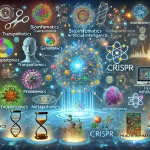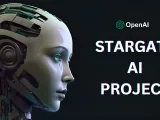
Where Can I Find Mutation Databases Specialized in Cancer?
January 10, 2025If you are looking for mutation databases specialized in cancer, particularly for breast cancer, there are several well-curated resources available. These databases provide information on somatic mutations, germline mutations, and other genomic alterations associated with cancer. Below is a comprehensive guide to help you find and use these databases effectively.
Step 1: Understand Your Needs
Before diving into the databases, clarify your requirements:
- Somatic vs. Germline Mutations: Are you looking for somatic mutations (acquired in tumors) or germline mutations (inherited)?
- Gene-Specific Data: Are you focusing on specific genes like BRCA1 and BRCA2?
- Sequence Data: Do you need mutated and non-mutated gene sequences?
Step 2: Explore Cancer Mutation Databases
Here are some of the most widely used databases for cancer mutations:
1. COSMIC (Catalogue of Somatic Mutations in Cancer)
- Description: A comprehensive database of somatic mutations in human cancer.
- Features:
- Mutation data for over 1,000 cancer genes.
- Information on mutation frequency, type, and clinical relevance.
- Website: COSMIC
2. ICGC (International Cancer Genome Consortium)
- Description: A global project providing genomic data for 50 different cancer types.
- Features:
- Whole-genome and whole-exome sequencing data.
- Mutation data for breast cancer and other cancers.
- Website: ICGC
3. cBioPortal
- Description: A user-friendly platform for exploring cancer genomics data.
- Features:
- Mutation, copy number, and expression data for various cancers.
- Interactive visualization tools.
- Website: cBioPortal
4. TCGA (The Cancer Genome Atlas)
- Description: A large-scale project providing genomic data for 33 cancer types.
- Features:
- Mutation, expression, and clinical data.
- Data available for breast cancer (e.g., BRCA dataset).
- Website: TCGA
5. Breast Cancer Information Core (BIC)
- Description: A database focused on germline mutations in breast cancer genes.
- Features:
- Mutation data for BRCA1 and BRCA2.
- Information on mutation frequency and clinical significance.
- Website: BIC
6. IARC TP53 Database
- Description: A database of TP53 mutations in human cancers.
- Features:
- Mutation data for the TP53 tumor suppressor gene.
- Information on mutation type and functional impact.
- Website: IARC TP53
7. CIViC (Clinical Interpretation of Variants in Cancer)
- Description: A community-driven database for interpreting cancer variants.
- Features:
- Evidence-based interpretations of cancer mutations.
- Focus on clinical relevance.
- Website: CIViC
8. JAX Clinical Knowledgebase (CKB)
- Description: A database of cancer variants and their clinical implications.
- Features:
- Mutation data for actionable cancer genes.
- Information on targeted therapies.
- Website: JAX CKB
Step 3: Search for Specific Mutations
If you are looking for specific mutations (e.g., 187_189delAG in BRCA1 or 6174delT in BRCA2), follow these steps:
- COSMIC:
- Go to the COSMIC website.
- Search for the gene (e.g., BRCA1) and mutation (e.g., 187_189delAG).
- BIC:
- Visit the BIC website.
- Search for BRCA1 or BRCA2 mutations.
- cBioPortal:
- Go to cBioPortal.
- Select the breast cancer dataset (e.g., TCGA BRCA) and search for the mutation.
Step 4: Download Mutation Data
Most databases allow you to download mutation data for further analysis. Here’s how:
- COSMIC:
- Navigate to the COSMIC downloads page.
- Download mutation data for specific genes or cancer types.
- TCGA:
- Use the GDC Data Portal to download mutation data.
- Select the breast cancer dataset (e.g., TCGA BRCA) and download MAF files.
- ICGC:
- Visit the ICGC Data Portal.
- Download mutation data for breast cancer or other cancers.
Step 5: Analyze Mutation Data
Once you have downloaded the data, you can analyze it using tools like:
- R or Python for statistical analysis.
- IGV (Integrative Genomics Viewer) for visualizing mutations.
- OncoKB for annotating mutations with therapeutic implications.
Step 6: Example Workflow
Example: Finding BRCA1 Mutations in COSMIC
- Go to the COSMIC website.
- Search for BRCA1.
- Filter results by mutation type (e.g., 187_189delAG).
- Download the mutation data for further analysis.
Tips and Tricks
- Combine Databases: Use multiple databases to cross-validate mutation data.
- Check for Updates: Cancer mutation databases are frequently updated. Ensure you are using the latest version.
- Use APIs: Many databases provide APIs for programmatic access to mutation data.
By following this guide, you can efficiently find and analyze cancer mutation data, particularly for breast cancer. These resources will help you identify relevant mutations and their clinical significance, enabling deeper insights into cancer genomics.

















